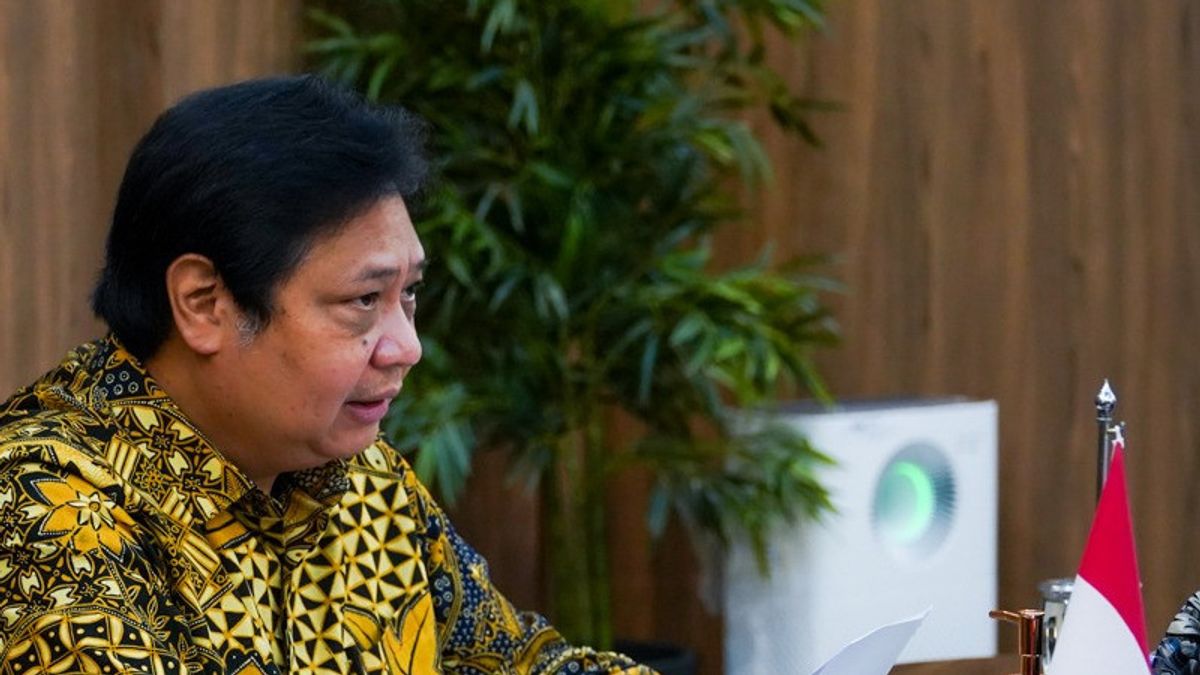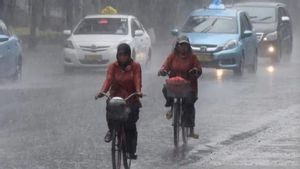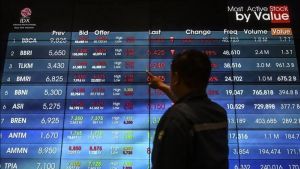JAKARTA - The Indonesian government signed the Regional Comprehensive Economic Partnership (RCEP) Agreement. Through this agreement, Indonesia can respond to various dynamics of changes in the world economy as well as in strengthening the world market that remains open.
The RCEP Agreement was an initiative of Indonesia when he became the Chair of ASEAN in 2011, where Indonesia was then trusted to be the coordinator who led the negotiation of the RCEP Agreement.
The implementation of the RCEP Agreement, which is targeted for ratification in the first quarter of 2022, is becoming increasingly important amid global economic shocks caused by the trade war and the Covid-19 pandemic. To deal with this implementation, it is necessary to prepare strategic steps as an effort to mitigate and utilize the RCEP agreement for Indonesia.
"RCEP is the largest regional trading block agreement in the world, covering 30% of world GDP, 27% of world trade, 29% of world foreign direct investment and 29% of the world's population," said Coordinating Minister for the Economy Airlangga Hartarto in a written statement. , Friday December 31st.
Currently, there are 7 ASEAN countries (Brunei, Cambodia, Laos, Thailand, Singapore, Vietnam, and Myanmar) and 5 ASEAN Partner Countries (China, Japan, Australia, New Zealand, and South Korea) that have completed ratification. Ratification by the Government of Indonesia is the main condition for the use of the RCEP Agreement in Indonesia.
The implementation of the RCEP Agreement is not carried out directly but gradually, namely the elimination of tariffs of 65% at the time of entry into force (EIF) in 2022, 80% for EIF+10 years, and 92% for EIF+15-20 years.
Coordinating Minister Airlangga explained that the implementation of the RCEP Agreement will bring various benefits to Indonesia, including certainty and uniformity of trade rules, a more conducive investment climate, increased business opportunities for goods, services and investment, and strengthening integration into the Regional Value Chain (RVC).
RCEP member countries have a significant meaning for the Indonesian economy as an export destination (56%) and Indonesia's main import source (65%) in 2020. RCEP member countries are also the main source of foreign investment flows (FDI) to Indonesia. In 2020, 72% of FDI entering Indonesia came from RCEP member countries with Singapore, China, Japan, South Korea and Malaysia being the main investors.
The RCEP agreement has the main advantage of simplifying FTA rules. Through the RCEP mechanism, one type of Certificate of Origin (SKA) will be used throughout the RCEP area so as to save trade costs.
The RCEP agreement also supports the creation of RVC through the recognition of raw materials/intermediate materials originating from RCEP member countries, thus forming a Regional Production Hub. This is an opportunity for Indonesia to develop an industry that produces final products, not just semi-finished products. This shows that participation in RVC provides a big added value.
In addition to encouraging exports to RCEP member countries, Indonesia can attract more Foreign Direct Investment with the support of investment facilitation, technology transfer, and investment legal certainty regulated in RCEP.
As a comprehensive and modern agreement, RCEP not only regulates market access, but also contains several important features such as the creation of a conducive electronic trading system (e-commerce) ecosystem and increasing the capacity of MSME actors, especially in terms of promotion and digital access to enter the marketplace. regional supply chain.
“The keyword for using RCEP is increasing competitiveness. The ease of doing business through the Job Creation Act is one of our main weapons to attract investment from export-oriented RCEP member countries. We must also be able to take advantage of Indonesia's G20 Presidency in 2022 to encourage the use of RCEP and strengthen Indonesia's leadership," concluded Coordinating Minister Airlangga.
The English, Chinese, Japanese, Arabic, and French versions are automatically generated by the AI. So there may still be inaccuracies in translating, please always see Indonesian as our main language. (system supported by DigitalSiber.id)











